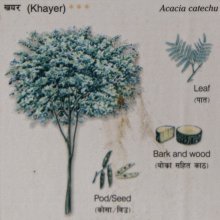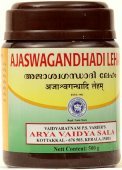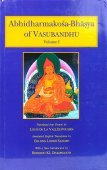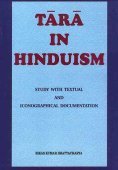Koca, Kōcā: 14 definitions
Introduction:
Koca means something in Hinduism, Sanskrit, Buddhism, Pali, Marathi, Tamil. If you want to know the exact meaning, history, etymology or English translation of this term then check out the descriptions on this page. Add your comment or reference to a book if you want to contribute to this summary article.
Alternative spellings of this word include Kocha.
Images (photo gallery)
In Hinduism
Ayurveda (science of life)
Source: gurumukhi.ru: Ayurveda glossary of termsKoca (कोच):—Contraction

Āyurveda (आयुर्वेद, ayurveda) is a branch of Indian science dealing with medicine, herbalism, taxology, anatomy, surgery, alchemy and related topics. Traditional practice of Āyurveda in ancient India dates back to at least the first millenium BC. Literature is commonly written in Sanskrit using various poetic metres.
Languages of India and abroad
Pali-English dictionary
Source: Sutta: The Pali Text Society's Pali-English DictionaryKoca, (fr. kuc) see saṃ°. (Page 227)

Pali is the language of the Tipiṭaka, which is the sacred canon of Theravāda Buddhism and contains much of the Buddha’s speech. Closeley related to Sanskrit, both languages are used interchangeably between religions.
Marathi-English dictionary
Source: DDSA: The Molesworth Marathi and English Dictionarykōca (कोच).—m C The kāndā or bulb of āmbēhaḷada (Turailment. meric-colored zedoary).
Source: DDSA: The Aryabhusan school dictionary, Marathi-Englishkōca (कोच).—m A couch, a sofa.
Marathi is an Indo-European language having over 70 million native speakers people in (predominantly) Maharashtra India. Marathi, like many other Indo-Aryan languages, evolved from early forms of Prakrit, which itself is a subset of Sanskrit, one of the most ancient languages of the world.
Sanskrit dictionary
Source: DDSA: The practical Sanskrit-English dictionaryKoca (कोच).—a. [kuc kartari ṇa] Drying, becoming dry.
-caḥ 1 Drying up, withering, aridity.
2) A man of mixed caste, (the offspring of a fisherman by a female butcher.)
Source: Cologne Digital Sanskrit Dictionaries: Shabda-Sagara Sanskrit-English DictionaryKoca (कोच).—m.
(-caḥ) A man of degraded caste, the offspring of a fisherman by a female of the butcher tribe.
Source: Cologne Digital Sanskrit Dictionaries: Benfey Sanskrit-English DictionaryKoca (कोच).—i. e. kuc + a, m. Shrinking, [Suśruta] 1, 269. 1.
Source: Cologne Digital Sanskrit Dictionaries: Cappeller Sanskrit-English DictionaryKoca (कोच).—[masculine] drying, shrinking up.
Source: Cologne Digital Sanskrit Dictionaries: Monier-Williams Sanskrit-English Dictionary1) Koca (कोच):—m. ([gana] jvalādi) drying up, desiccation, [Suśruta]
2) a man of mixed caste (offspring of a fisherman by a female of the butcher tribe), [Brahma-purāṇa] ([varia lectio] koñca.)
Source: Cologne Digital Sanskrit Dictionaries: Yates Sanskrit-English DictionaryKoca (कोच):—(caḥ) 1. m. Man of low caste.
[Sanskrit to German]
Sanskrit, also spelled संस्कृतम् (saṃskṛtam), is an ancient language of India commonly seen as the grandmother of the Indo-European language family (even English!). Closely allied with Prakrit and Pali, Sanskrit is more exhaustive in both grammar and terms and has the most extensive collection of literature in the world, greatly surpassing its sister-languages Greek and Latin.
Kannada-English dictionary
Source: Alar: Kannada-English corpusKōca (ಕೋಚ):—[adjective] = ಕೋಚು [kocu]1.
--- OR ---
Kōca (ಕೋಚ):—
1) [noun] the act or process of becoming dry.
2) [noun] an instance of contracting or shrinking oneself due to loss of moisture from within.
3) [noun] the act of bending or making crooked.
4) [noun] the act or an instance of stealing; theft.
Kannada is a Dravidian language (as opposed to the Indo-European language family) mainly spoken in the southwestern region of India.
Tamil dictionary
Source: DDSA: University of Madras: Tamil LexiconKōcā (கோசா) noun < Urdu khōjā. Hermaphrodite, eunuch; அலி. [ali.] (W.)
--- OR ---
Kōcā (கோசா) noun See கோஷா. [kosha.] Tinnevelly usage
Tamil is an ancient language of India from the Dravidian family spoken by roughly 250 million people mainly in southern India and Sri Lanka.
See also (Relevant definitions)
Starts with (+20): Ko-cancarapumi, Koca-akarakatti, Kocai, Kocakaca, Kocakai, Kocakam, Kocakaram, Kocakila, Kocakindara, Kocakkam, Kocakkaran, Kocakoca, Kocala, Kocalai, Kocalarekai, Kocalem, Kocam, Kocamacakku, Kocami, Kocan.
Ends with (+10): Abhyantaratasankoca, Angasankoca, Cittasankoca, Dakoca, Dvarasankoca, Guhyasankoca, Hastasankoca, Kanakoca, Karakoca, Kocakoca, Mukhasankoca, Netrasankoca, Nihsankoca, Nikoca, Nissamkoca, Pushpasankoca, Raktasamkoca, Raktasankoca, Sakoca, Samkoca.
Full-text (+58): Kosha, Konca, Kocata, Manomayakosha, Kocam, Samkoca, Akkhana Kosa, Samkocakarin, Samkocapishuna, N'kosa, Samkocapattraka, Koso-kosa, Sankocam, Jhuse kuteli kosa, Kuteli kosa, Samkocarekha, Mo kosa, Kosa motsiio, Pancakroshi, Sukshmasharira.
Relevant text
Search found 31 books and stories containing Koca, Kōca, Kōcā, Kosa, Kosaa, Kaosaa, Kocha; (plurals include: Kocas, Kōcas, Kōcās, Kosas, Kosaas, Kaosaas, Kochas). You can also click to the full overview containing English textual excerpts. Below are direct links for the most relevant articles:
Tiruvācakam Part I (by Māṇikkavācakar)
Vivekachudamani (by Shankara)
Visuddhimagga (the pah of purification) (by Ñāṇamoli Bhikkhu)
Guarding the Sign < [Chapter IV - The Earth Kasiṇa (Pathavī-kasiṇa-niddesa)]
Lord Hayagriva in Sanskrit Literature (by Anindita Adhikari)
Notes regarding the term ‘Hājo’ < [Chapter 6]
On Syllabic Melody of Nannaya’s Poetry < [April – June, 1979]
Religion: The Indian Understanding < [July – September 1991]
Vernacular architecture of Assam (by Nabajit Deka)
Rabha Vernacular Architecture < [Chapter 7]
Related products





